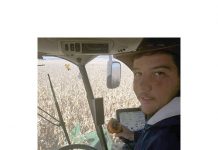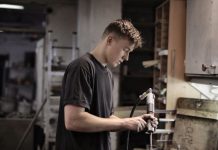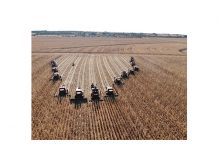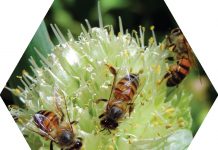Given the intricate issues and risks that young South African producers face at many a level, it is natural for them to envy their European counterparts for their seemingly conducive agricultural circumstances. To the contrary, it seems that the grass is not necessarily greener on that side of the fence.
‘In Germany farmers have always had uncertainty about the weather – we are used to it – but politicians who are constantly shifting the goal posts mean we cannot plan for the future. We do not know what the legislation on the use of pesticides in five years will entail,’ said Stefan Cramm (27), a grain producer from West Germany and president of the Young Farmers Association of Germany.
Stefan formed part of a panel of producers from all over Europe who were invited to share their vision of agriculture for the decade to come. This was during a global press conference of agrochemical group, BASF, at the end of last year in Nunhem in the Netherlands.
A common message from panel members was that the credibility of producers is still very much of an issue to European society. Normal farming challenges like climate and technology are exacerbated by political, regulatory and societal challenges. European agriculture is faced by a controversy on the use of phytosanitary products as well as consumers’ obsession with anything produced organically. Commercial farming is often pointed out as the scapegoat for environmental problems caused by factors spreading far wider than agriculture, resulting in draconic proposed legislation on the use of herbicides and pesticides by producers.
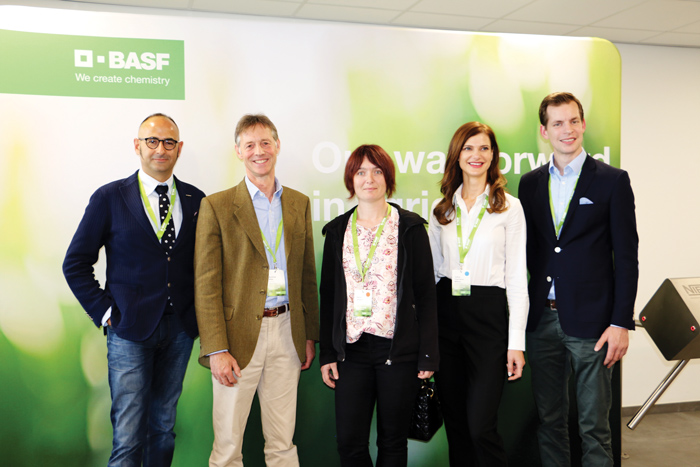
‘Insects continue and will continue to exist and if we do not work with the necessary means to combat them, resistance will continue to grow and affect our productions. Chemistry is necessary and, although many wish otherwise, we need companies like BASF to make it happen and also to explain it to the producer and the consumer,’ explained Italian producer Dionisio l’Abatte. Stefan added that the fact that we have better soils today than 50 years ago is due to technology, since agrochemical companies have been involved to save producers’ crops.
Panel member Galina Peychova-Miteva, a Bulgarian producer, argued that society should recognise the sentiment that most producers have for farming. ‘It is a passion that often goes beyond one generation – it is a mission, not just another business,’ she said.
First-generation farm
Bulgaria formed part of the former Eastern European block up until 1999 and no private property was allowed. Galina’s family started purchasing land 15 years ago and has managed to create a first-generation farm of 1 650 ha, cultivating vineyards, coriander, lavender, sunflower and cotton.
For her it has been a challenge and opportunity to learn, because she doesn’t come from a farming background and the preconceptions of farming are not familiar to her. ‘It has some advantages too, because you approach the management of the business in a completely new way.
‘I take care of everything regarding the very intensive documentation that the European Union requires as well as the production decisions about what to do, how we do it and how we protect it from the environment. The risks are up to me, but we have a team of agronomists with whom we consult about everything,’ she explained her role in their farming operation.
Galina accepted BASF’s offer to be a panel member, because she believes that producers are neither the bad guys nor people who merely do farming for profit or subsidies only. ‘Usually farming goes from generation to generation, especially in Europe. The cumulative effort of so many generations and so many people proves the great responsibility and their accountability.’
She reckons it is difficult to convince young people that farming is an honourable, interesting, challenging, prestigious job, when actually as far as management goes, it is one of the most difficult. ‘It is fundamental that we attract Generation Z to agriculture when they have given the very clear message that they value sustainability, conservation of the environment and that they care about food and where it comes from.’
A German perspective
According to Stefan, who is from a farming tradition spanning more than six generations, it was always clear to him that he wanted to make a career out of farming. After attaining a master’s degree in agricultural economics, he initially farmed 100 km north of the family farm for five years. Nowadays he is farming near Einbeck in southern Lower Saxony in Germany. Since he recently took over the family’s farming operation from his father, he acquired another farm close to home.
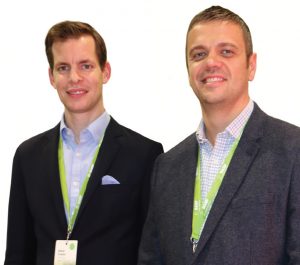
He applies conventional cropping methods in a rotational system with winter wheat, sugar beet, winter wheat, winter barley and maize. They plough 20% per year, especially after winter wheat and after maize.
Having visited South Africa before, he adoringly referred to the size of our farms. In their region a normal farm is about 80 ha, but over time this has changed as farming operations are increasingly getting bigger.
Although it is from a different political perspective than that of South African producers, the pressure that German producers are experiencing through politics is real. ‘It is not only German politics. Our neighbouring countries in the European Union are experiencing the same pressure from politics and consumers,’ Stefan added.
His message to young farmers of South Africa is as follows:
- Try your best to obtain a good education.
- Build up good infrastructure between farms.
- What you produce, you must put out. You need good partners – especially on the trading side.
- Establish effective networks with experts in every discipline.
- It is important to be involved in organised agriculture.
SA Graan/Grain attended the international press conference in Nunhem in the Netherlands during October 2019 as a guest of BASF SA.



